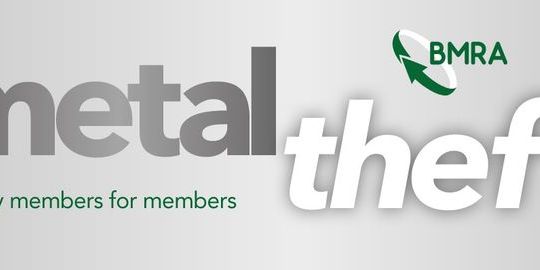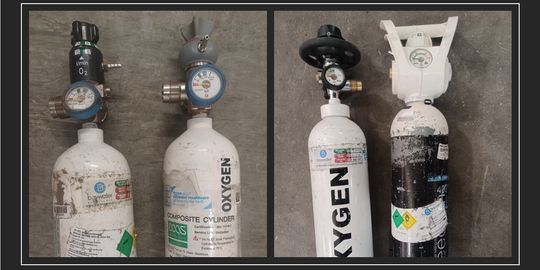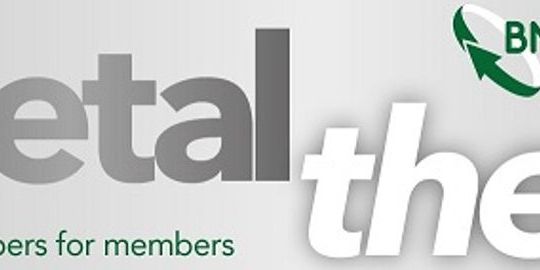ONS data proclaim that metal theft is down but do the data show the true picture?
When the latest Office of National Statistics’ (ONS) metal theft data for year-end March (YEM) 2020, I was more than somewhat surprised that metal theft was down. Reports in the media and those I heard anecdotally indicated quite the opposite.
So, I decided to have a closer look. In its most recent dataset, the ONS reports that at 15,947 incidents, overall metal thefts are down by 91. However, these data do not include thefts reported in Greater Manchester, which in YEM 2019 topped 1,300. In fact, given Metropolitan Police statistics show 8,248 catalytic converters were stolen in London alone in 2019, the data presented by ONS are curious to say the least.
The ONS data also shows a concerning increase in infrastructure-related events, going from 6,884 to 8,313. The fact that many companies are not reporting what can be high-value thefts, possibly due to large insurance excess values or perceived reputational damage, means the ONS data will not be presenting a true picture and this figure is highly likely to be far higher. Worryingly, crimes recorded by British Transport Police (BTP) have nearly doubled going from 459 YEM 2019 to 850 in the latest dataset. The last time BTP reports were over 850 was in 2013, the year the Scrap Metal Dealers Act was implemented.
Moreover, that ONS data does not reflect that the type of metal theft has changed. It has gone from individual low-value thefts such as a length of lead flashing to highly organised, gang-led thefts where entire church roofs are stolen.
Such is the scale of losses that the value lost to metal theft is now said to have surpassed the £220 odd million calculated by Deloitte in 2011, which led to the introduction of the Scrap Metal Dealers Act in 2013. This is interesting because in 2011, the country had barely come out of the deepest UK recession since the Second World War.
With the country once again beset by recession, it seems likely that stealing metal may once again become in vogue amongst those who see it as a victimless crime, who think insurance companies will pay up and all will be well. To quote BTP’s then Chief Constable Andy Trotter back in 2011: “Metal theft is a classic acquisitive crime, and acquisitive crime generally increases in difficult economic times.”
Yes, cash has been banned from the sector and there are enhanced ID checks since then but there is now little to no enforcement by police services or local authorities. This is not for want of willingness, it is for want of budget. The Home Office look at the ONS data and declare ‘all is well; the Scrap Metal Dealers Act is working’. I would question how data that is potentially missing over 1,000 thefts can be relied upon? I would also question if the Act is working why were there an additional 1,429 infrastructure thefts?
It seems to me there must be a disconnect in the way that metal thefts are reported. For example, is the theft of a catalytic converter a metal theft or theft from a vehicle when it comes to ONS data? Likewise, if someone steals a load of copper from a plumber’s garage, is that metal theft or burglary? As far as I am aware, metal theft is not a specific offence code within police recorded crime (PRC), which means the problem could be greater than we think.
I also don’t believe that the ONS data is linked with the data gathered by the Energy Networks Association’s SIRS database. I understand that even if communications companies or power companies don’t report a metal theft to the police because the value was below their insurance excess, some still put it on SIRS (as long as they have the internal reporting systems in place). This means the data is there.
I don’t believe that we will truly tackle metal theft until we have proper enforcement of the Scrap Metal Dealers Act. However, there will be no funding to support sustained enforcement until we have the data to lay before the Home Office. In short, the first thing that has to be done is to find a more accurate way to gather metal theft data. Surely the first step is to give all metal theft a specific offence code. This needs to be supported by ensuring that all metal thefts are recorded, not just the ones that exceed insurance excesses.
I may be being naïve, but I remain ever hopeful.



